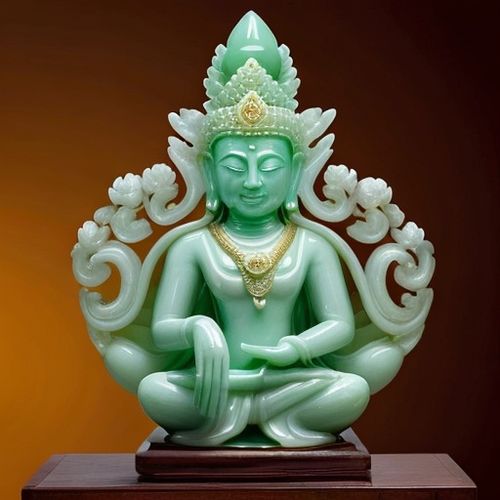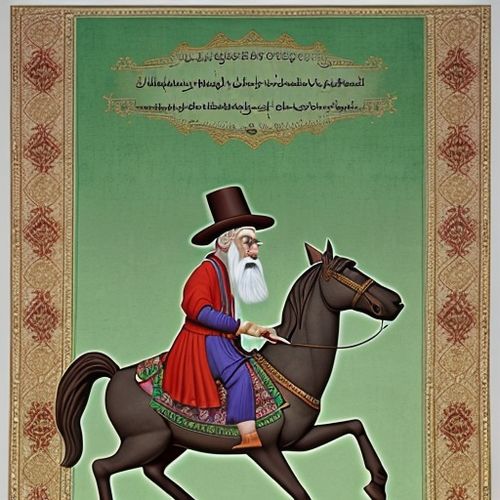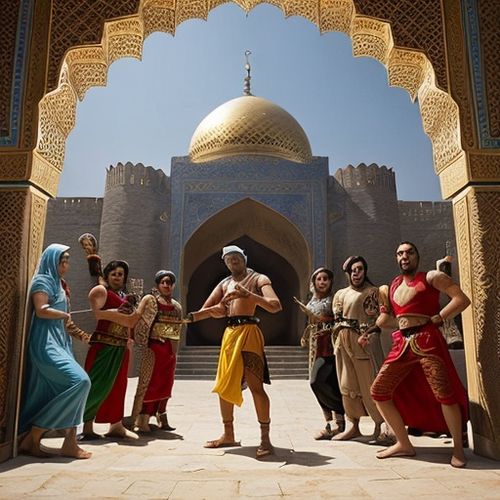The name Nasreddin evokes a peculiar blend of humor, wisdom, and absurdity that has transcended centuries and borders. Though often associated with Turkish folklore, the tales of Nasreddin Hodja—sometimes spelled Nasruddin or Nasreddin—have permeated cultures from the Balkans to China. His stories, wrapped in simplicity yet layered with meaning, continue to resonate in modern times, offering both laughter and reflection.
Who Was Nasreddin Hodja? The historical existence of Nasreddin remains shrouded in mystery, with scholars debating whether he was a real person or a composite of many wise fools. Most accounts place him in the 13th century, during the Seljuk era, in the region of Akşehir, a small town in present-day Turkey. What’s undeniable is his enduring legacy as a folk hero whose anecdotes straddle the line between comedy and philosophy.
Nasreddin’s tales often begin with mundane scenarios—a borrowed pot, a lost donkey, or a dispute with neighbors—but twist into unexpected conclusions that expose human folly. In one famous story, he searches for his keys under a lamppost because the light is better there, even though he dropped them elsewhere. The anecdote, seemingly silly, critiques our tendency to look for answers where it’s convenient rather than where they might actually lie.
The Universal Appeal of Nasreddin’s Wisdom What makes Nasreddin’s stories remarkable is their adaptability. Versions of his jokes appear in Persian, Arabic, and even Italian folklore, each culture imprinting its own nuances. In some tellings, he’s a pious scholar; in others, a bumbling everyman. Yet the core remains: his ability to reveal truths through paradox and wit.
Take, for instance, the tale where Nasreddin loudly praises a tree for bearing no fruit—because fruit would attract children who might break its branches. On the surface, it’s laughably illogical. But beneath lies a commentary on how we rationalize our failures or find virtue in inadequacy. Such stories have made him a beloved figure not just in Turkey but across the Islamic world and beyond.
Nasreddin in Modern Turkey In contemporary Turkey, Nasreddin Hodja is more than a folkloric relic; he’s a cultural touchstone. His statue in Akşehir, depicting him riding his donkey backward, has become a symbol of the town. Annual festivals celebrate his legacy with storytelling competitions, theatrical performances, and academic discussions. Even political cartoons occasionally borrow his likeness to lampoon current events, proving his relevance endures.
Educators, too, have embraced Nasreddin’s tales as tools for critical thinking. Schools incorporate his stories into curricula to teach children about irony, problem-solving, and ethical reasoning. The simplicity of the narratives makes them accessible, while their depth invites endless interpretation—a rare combination in pedagogical materials.
Beyond Borders: Nasreddin’s Global Influence The spread of Nasreddin’s stories along the Silk Road illustrates how folklore travels and evolves. In Central Asia, he’s known as Afandi or Apendi; in Greece, as Hoja Nasreddin. Each version reflects local values while preserving the essence of his humor. UNESCO’s recognition of 1996–1997 as the "International Nasreddin Year" underscored his role as a bridge between cultures.
Interestingly, Nasreddin’s influence extends to literature and pop culture. Writers like Idries Shah have anthologized his tales, framing them as Sufi teaching stories. Meanwhile, animated adaptations and meme culture have reintroduced him to younger audiences, often stripping the stories of their original context but keeping their playful spirit alive.
The Timelessness of Foolish Wisdom Nasreddin’s enduring appeal lies in his duality—he’s both the fool and the sage, the one who stumbles into enlightenment. His stories don’t offer neat morals but instead invite listeners to grapple with contradictions. In an era of polarized certainties, perhaps we need Nasreddin’s brand of humor more than ever: a reminder that wisdom often wears the disguise of absurdity.
Whether he existed or not, Nasreddin Hodja lives on in the collective imagination, a testament to humanity’s love for stories that make us laugh while nudging us to think deeper. His legacy is a reminder that sometimes, the most profound truths are hidden in plain sight—or in the punchline of a joke about a missing donkey.

By Olivia Reed/Apr 28, 2025

By Emma Thompson/Apr 28, 2025

By Samuel Cooper/Apr 28, 2025

By Grace Cox/Apr 28, 2025

By George Bailey/Apr 28, 2025

By Rebecca Stewart/Apr 28, 2025

By George Bailey/Apr 28, 2025

By Olivia Reed/Apr 28, 2025

By Eric Ward/Apr 28, 2025

By Benjamin Evans/Apr 28, 2025

By Amanda Phillips/Apr 28, 2025

By Sophia Lewis/Apr 28, 2025

By Christopher Harris/Apr 28, 2025

By Benjamin Evans/Apr 28, 2025

By Rebecca Stewart/Apr 28, 2025

By David Anderson/Apr 28, 2025

By Olivia Reed/Apr 28, 2025

By Lily Simpson/Apr 28, 2025

By Emma Thompson/Apr 28, 2025

By Laura Wilson/Apr 28, 2025